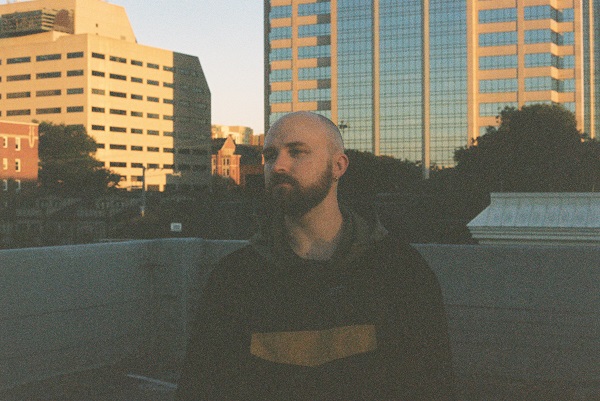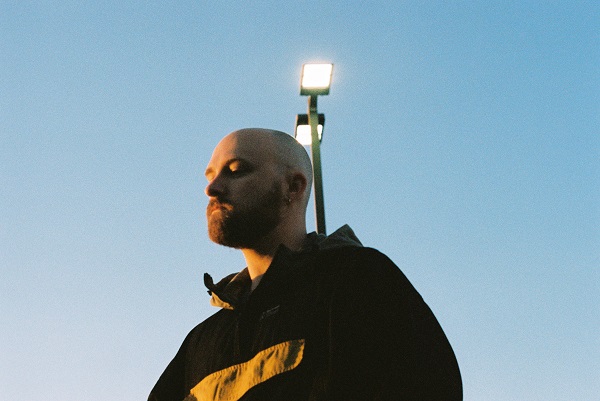
For more than a decade, Trevor Tillery was an electronic singer/songwriter. He had achieved over one million streams across all major streaming platforms, and had even done several TV and film placements for HBO’s Vice, Oxygen, and MTV. But the paychecks were anything but steady, and Trevor continued working intermittently in the service industry as a bartender, server, and barista to make ends meet.
While he loved making music, Trevor craved a career where he could continue to work in the creative field while having a more predictable income. At first, he thought graphic design would be it, but he found that was pretty unstable, too--especially as a freelancer. Then he discovered UX design. He took a brief course in UI/UX design at the Parsons School of Design, but found that it was “very surface-level.” He started searching for a bootcamp that would give him the tools to emerge job-ready, and that’s when he came across Springboard. Now, he’s an experience designer at Nerdery, a digital business consultancy based in Minnesota.
“Nerdery is an agency, so we work with all sorts of different clients,” said Trevor. “Google is one of our clients, which is cool. I'm actually working on three projects right now, which is a lot to balance, but I'm learning a lot because they're all very different.”
I was in the music industry for over a decade. I was in rock bands for a long time and then I did some producing and songwriting, as well as some TV and film placement work. During that whole time, I also worked in the service industry as a bartender, barista, server—all the things. I was getting a little burned out doing both because music is not very stable.
After a while, I just wanted to find something else that was creative but also stable. So I started getting into graphic design.
Yes. I started by self-teaching myself graphic design and then I completed a certificate program at the Parsons School of Design. Then I did some freelance work that was mostly music-related—designing album covers and things like that.
That’s what I thought I wanted to do initially but realized graphic design was also very similar to music in that it wasn't very stable either. While I was enrolled in the certificate program at Parsons, I noticed they had a UX/UI course. I took the course but it was very surface-level, and it felt more like an introductory course. So then I became really interested in UX design and decided I wanted to find a bootcamp so I could learn how to become a UX designer.

There are a lot of challenges but it's still creative, plus I’ve always liked technology like apps and websites. UX design is all of those things merged together. You also have the opportunity to help people in some way. If you're on the right project, you could be doing something huge that could potentially impact millions of people. That idea seemed really cool to me.
I’m an experience designer, so I work more on the visual side of things. Nerdery is an agency, so we work with all sorts of different clients. Google is one of them, which is cool. I'm actually working on three projects right now, which is a lot to balance, but I'm learning a lot because they're all very different. So I would say agency work is cool because you can learn a lot faster because you're working on a huge variety of projects.
Oh, definitely. I’ve never had a salary with full benefits before. So yes, stability is definitely a thing. It's great.
It was a cool way to get more experience, especially with collaborating remotely, which is what I do now in my job. I'm a permanent remote worker, so it was a good way to get my feet wet. We were a group of five and we basically had a full day to work together and dive into a project for a smart dog collar app. We had to make an onboarding process for the app.
I do get excited about design trends but I'm also wary because I work for an agency, which means there are a lot of project constraints, so I can’t really use the latest design trends that much. But I’ll go on Dribbble and see cool things like glass morphism and that really excites me.
I see it mostly in UI cards which have a blurred background effect similar to frosted glass. Apple tends to use it a lot on their Mac interfaces and in apps like Apple Music.

It just seemed like the right fit in terms of being self-paced and having a dedicated mentor you would check in with every week. You also have unlimited access to the other mentors around you plus a whole community on Slack of the other people in your cohort and even people who have already graduated. Compared with the other bootcamps I looked at, Springboard seemed like it had a good curriculum with a clear syllabus and project outlines.
Yes.
I was hesitant in that it was the first time I had participated in any kind of schooling in a while. So that was nerve-wracking, but overall the onboarding process at Springboard was really good and my mentor, Vlad-Titus Tudor [senior UI/UX design consultant at NEORIS], was very attentive even though he was on the other side of the world.
I felt like he was always rooting for me from the very beginning. He was really excited about my background in graphic design because I was able to catch on to the UI side of things really quickly. Towards the end of the bootcamp, I landed a freelance gig at an agency, and we celebrated together. Soon after, I landed my current job at Nerdery, and we celebrated again. He was a new mentor at Springboard so I was his first student to graduate.

It did, for sure—especially because I was more interested in a visual design job that still involves UX elements. The career coaches at Springboard advised me to start applying to jobs towards the end of the bootcamp instead of waiting until graduate, which I did. I think that's why I was able to land that initial freelance role pretty quickly, which helped me get the job I have now. The more I networked on LinkedIn and met with people, the more I was able to get referrals for different jobs.
But I happened to luck out because I had a friend who was also mentoring me outside of Springboard and he works at Nerdery and he put in a good word for me.
If you can carve out the time, make job searching into your full-time job. While you’re going through the course, engaging in networking and doing the groundwork for your job search will speed up the process of finding a job after graduating, rather than waiting until the end.
I do really well with deadlines and projects, so the best thing was having these projects lined up for me. The other thing was the support—having the mentors and other students to talk to was highly valuable.
Take your time, do the research, and talk to people. As I was learning graphic design, it took me about a year to figure out my niche and learn more about UI/UX. I also recommend watching a lot of YouTube videos, especially day-in-the-life vlogs by product designers or UX/UI designers to give you a window into that world.





